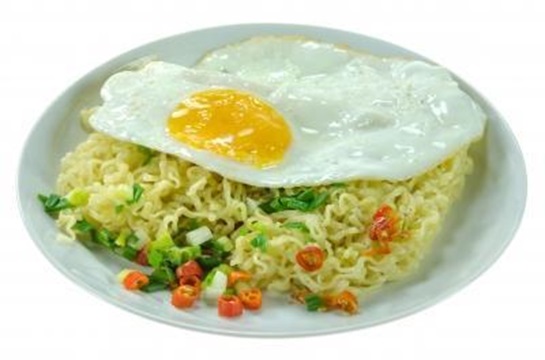Short In Food Budget? Cook Frugally
Excellent budgeting of one’s finances does not exempt a person from experiencing fund shortages for his/her food supply in the future. Setting aside money for his/her wants, savings, and investment needs is very important. An individual’s priority, however, should be the amount needed for his/her basic necessities, which include food, clothing, and shelter, the most essential of which is food. Inasmuch as a person would love to indulge in eating his/her favorite dish, times of financial scarcity will require him/her to tighten the belt.
Cook Your Food
When faced with conditions wherein budget for food suddenly becomes scarce, it is good to avoid eating outside, especially in expensive food shops. It is best to cook one’s own dish at home, experimenting on various ways it can be done. There are many recipes for food employing a variety of methods in creating them. Food can be cooked in various of ways, which include baking, roasting, frying, grilling, smoking, boiling, steaming, braising, and most recently microwaving.
Eat Less Meat
Meat – beef, pork, chicken, and fish, among others are usually the more expensive forms of market items. If one is experiencing money shortage for food, it is wise to avoid purchasing them temporarily. Pick vegetables and fruits that can be served as salads, which are even healthier and more recommended by doctors, nutritionists, and dieticians than meat. However, should one still decide to eat meat, which is usually served as the main dish, he/she can make it as a side dish instead for the meantime until the budget permits.
Avoid cooking everything
Cooking food instead of eating outside will be a good way to save funds. However, it is advised to avoid cooking all of one’s food supply in just one time. Cook only the amount that can be consumed to avoid food excess and possible wastage. If one decides to cook all of his/her food supply in just one occasion, it is good to do it in two or more recipes for variety. Also, using more than one recipe is a good preparation should one decides to use leftovers for future meals.
Consider Using Leftovers
Many individuals have learned to use leftovers from their previous meals to help them get by should their funds fall short of what have been budgeted earlier. When eating out, these individuals make sure that surplus of food is packed and taken home. They also, ensure that excess foodstuff cooked at home, which can still be served in future meals, is properly set aside and kept in the frig.
Leftovers can be enhanced, converting it into another type of dish by adding additional ingredients – spices, condiments, etc. Fried or grilled food can be experimented on and eventually be transformed into a soup dish. Similarly, meat and/or vegetables in a soup recipe can be removed from it, set apart, and made as additional ingredients to another dish. In using cooking skills and a certain amount of creativity, a person can totally transform one dish to another!
Preserve Food
Another way of helping to save on food expense is to lengthen the shelf life of food. Room temperature, which is usually warm, is conducive for bacterial growth and so hastens the process of food spoilage while cooler temperature does otherwise. It is advisable to refrigerate fresh food items such as sea food, meat, eggs, and butter, among others, immediately after it has been bought. This also applies to cooked food when not being consumed. However, it is important to wait after cooked dishes have cooled down before doing this since sudden changes in temperature also adversely affects shelf life of food.
To further help ensure food supply when encountering budget difficulties, it is advised to avoid using dairy products as ingredients when cooking since these have shorter shelf life. It is also good to use those that can help extend shelf life of dishes. These are condiments that are usually saline, sweet, and sour in taste include salt, soy sauce, vinegar, and sugar, among others.
Lengthening shelf life will help extend supply of food during times of financial shortage. So it is also important to serve food properly at the table. Always remember to use serving spoons and/or forks for every dish. This is because saliva can spoil food, having enzymes that are acidic in nature and are able to break down food. Also, saliva contains bacteria that not only reduces food shelf life but are also harmful to people’s health.
Indeed, budgeting well for one’s food needs does not exempt a person from facing future obstacles related to food supply. So be flexible and frugal in handling your finances, especially those that are set aside for foodstuff. Use your creativity in preparing your food. Finally, learn how to cook, since this will not only be helpful during financial shortages but in daily living as well.
Photo Attribution:
Featured and 1st image by Stuart Miles / freedigitalphotos.net
2nd image by rakratchada torsap / freedigitalphotos.net
3rd image by Ambro / freedigitalphotos.net



